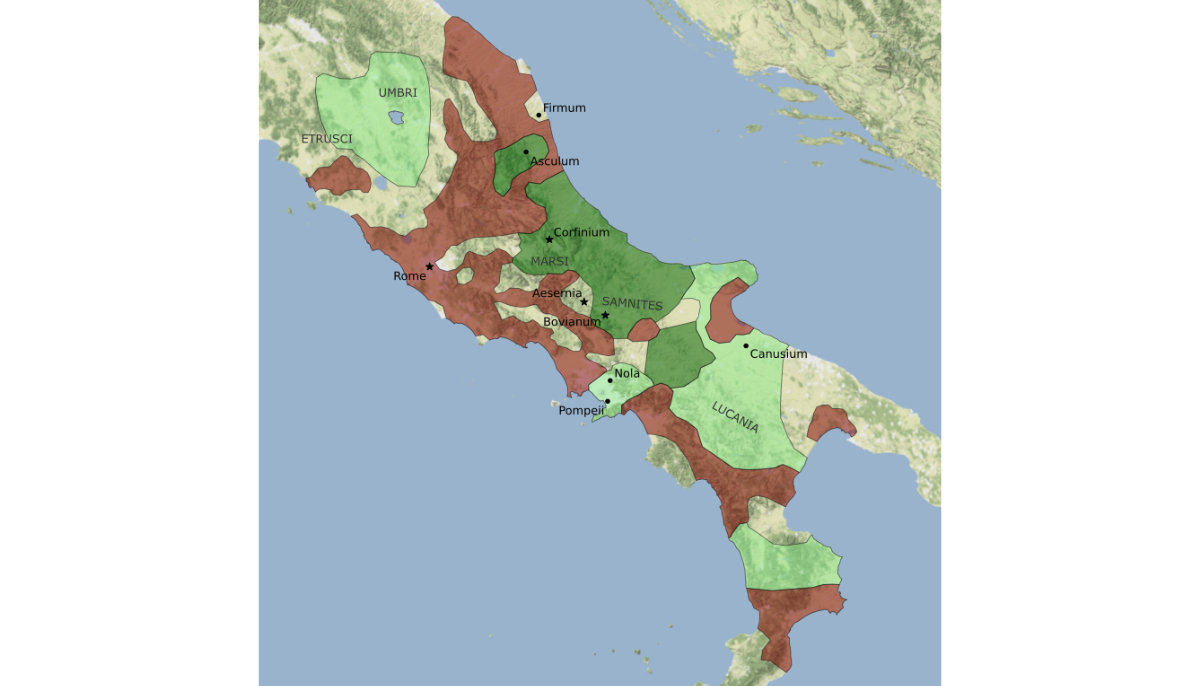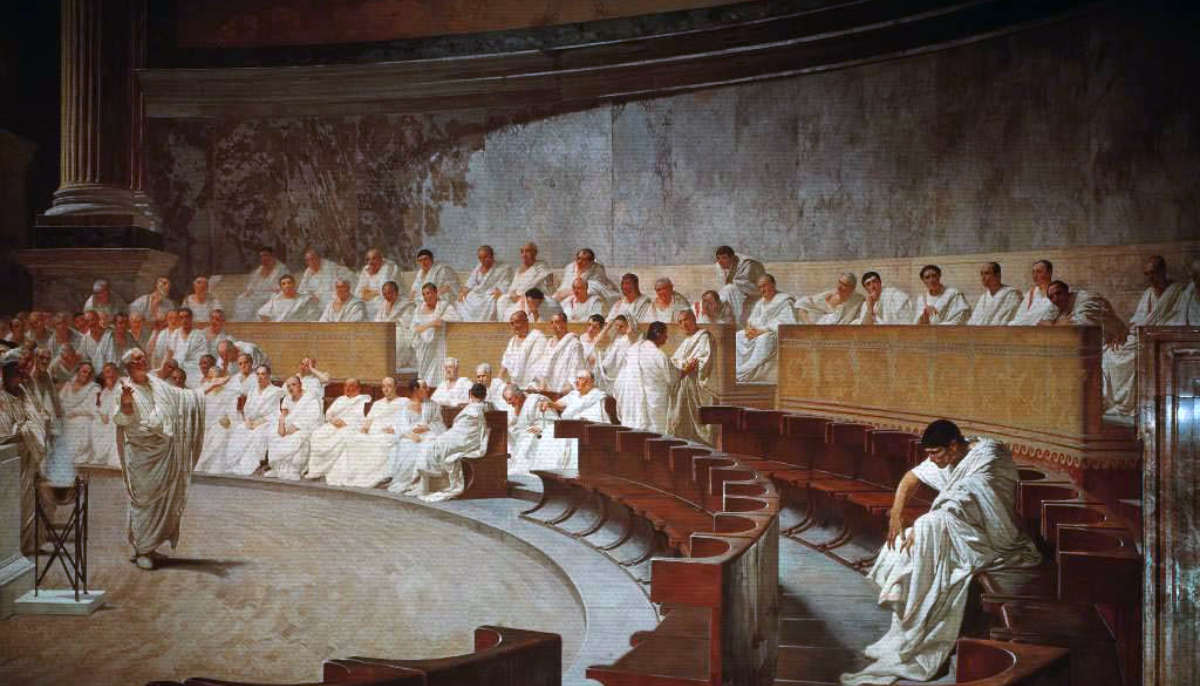“Civis Romanus sum” – “I am a Roman citizen.” This declaration epitomized the pride and significance of Roman citizenship. Our exploration delves into the evolution of citizenship during the Roman era, identifying who was granted this coveted status and why it mattered.
The article sheds light on the changing criteria for Roman citizenship, unveiling the strategic expansions that shaped Rome’s political and social landscape.
By understanding who qualified for citizenship and the reasons behind its pivotal importance, we gain insight into the fabric of Roman society and its lasting influence on modern concepts of identity and belonging.
The history of roman citizenship

Roman citizenship has a fascinating history, evolving over the centuries. Let’s take a brief journey through its key milestones.
the twelve tables
The Twelve Tables were a set of laws that played a significant role in the development of Roman citizenship. They were like the ancient Roman constitution, written on bronze tablets. These laws aimed to provide a legal framework for Roman society, including rules related to citizenship. They emphasized the importance of equal treatment under the law.
the social wars
The Social Wars were a series of conflicts in the 1st century BC. They were sparked by the demand of non-Roman Italian communities for Roman citizenship. This intense struggle led to important changes. Rome eventually granted citizenship to many of its Italian allies, extending the rights and privileges of citizenship beyond the city itself.
the lex Julia
The Lex Julia was a law enacted in 90 BC. This law redefined who could be considered a Roman citizen, making it easier for people from various regions to become citizens. It marked a significant shift towards inclusivity, as citizenship was no longer restricted solely to those born in Rome.
the edict of Caracalla
In 212 CE, Emperor Caracalla issued the Edict of Caracalla, also known as the Constitutio Antoniniana. This decree granted Roman citizenship to all free men in the Roman Empire. It was a monumental step, as it extended citizenship rights to a vast number of people, regardless of their place of birth
the benefits of Roman citizenship
Roman citizenship came with several notable advantages that set it apart from other statuses in the ancient world. Here are some key benefits:
- Right to Vote: Roman citizens had the privilege of participating in the political life of the Republic and Empire. They could vote in elections, helping to shape the government and choose their leaders.
- Right to Hold Civic Office: Roman citizens could aspire to hold public office, contributing to the governance of their city and Empire. This was a crucial avenue for individuals to influence policy and administration.
- Property and Contract Rights: Roman citizens enjoyed legal protection for their property and the ability to enter into contracts. The Romans were known for their strong legal system, and citizens could rely on it to safeguard their interests.
- Marriage and Citizenship for Children: When Roman citizens married, their children automatically inherited Roman citizenship. This ensured the continuity of citizenship within families and communities.
- Legal Protections: Roman citizens had legal safeguards that distinguished them from non-citizens. The Porcian Laws, established in the early 2nd century BC, provided protection against torture and whipping. Additionally, they allowed Roman citizens to choose voluntary exile instead of facing the death penalty, except for treason.
- Right to Trial in Rome: In case of being accused of treason, Roman citizens had the remarkable privilege of being tried in Rome, regardless of where the alleged crime occurred. This safeguarded their access to a fair trial in the heart of the Roman legal system.
- No Crucifixion for Roman Citizens: Another extraordinary benefit was that no Roman citizen could be sentenced to crucifixion, one of the most brutal forms of execution in ancient times. This protection underlined the value placed on Roman citizens’ lives.
Roman citizenship, with its array of rights and protections, was highly coveted and offered a level of legal security and social standing that many in the ancient world could only dream of. These privileges played a pivotal role in shaping Roman society and its legacy.
civic duty In Ancient Rome

In Ancient Rome, being a citizen came with important responsibilities, reflecting the core values of Roman society. Here’s a look at the civic duties of Roman citizens:
- Assembly Meetings and Voting: Roman citizens were expected to attend assembly meetings and actively participate in the democratic process by voting in elections. These gatherings allowed them to voice their opinions and contribute to the decision-making of the Republic.
- Holding Public Office: Wealthy Roman citizens felt a sense of duty to serve the Empire by holding positions in government offices. This not only showcased their commitment but also provided them with considerable local power and garnered respect and status among their peers.
SPQR – The Roman People’s Authority
Roman involvement in politics and society went far beyond mere civic responsibilities, playing a pivotal role in the rise of Rome. The acronym SPQR, denoting “Senatus Populusque Romanus,” encapsulates the profound Roman belief in the power and sovereignty of the people. This belief was not a passive notion but a driving force that shaped the destiny of Rome.
The Romans perceived themselves as a “populus liber,” a free populace firmly convinced that all authority emanated from their collective will.
In Roman society, the term “people” encompassed the entire governmental framework. It included the aristocratic Senate, whose decrees were executed by consuls and praetors, and the “comitia centuriata” or “committee of the centuries,” whose resolutions were safeguarded by tribunes.
Ancient Rome’s unwavering commitment to civic duty and its resolute belief in the people’s ultimate authority were instrumental in shaping the bedrock principles of democracy and governance.
Roman citizenship and romanization
In their quest for dominance, the Romans employed a unique strategy that set them apart from other conquerors – the promise of Roman citizenship. This approach was closely tied to the process of Romanization, gradually shaping conquered lands and peoples into an extension of Rome itself.
Unlike some conquerors who imposed their rule forcefully, Rome embraced a more gradual integration process known as Romanization. Instead of erasing local identities, Rome aimed to assimilate the culture, language, and institutions of the conquered territories over time.
Gradual Romanization
Roman citizenship was a powerful tool in their foreign policy and control strategies. Rome granted a “minor” form of citizenship to colonies and political allies, with various levels of citizenship and legal rights, including the prestigious Latin rights. This bound these regions closely to Rome’s sphere of influence and encouraged alignment with Roman culture and objectives.
The act of granting citizenship to allies and conquered territories was a pivotal element of the Romanization process. It was not about complete assimilation but aimed to transform defeated and potentially rebellious populations into Roman citizens.
By offering citizenship, Rome sought to make those under its rule feel invested in the Roman system. This proactive approach reduced the likelihood of widespread revolts that often plagued other conquerors. Non-Roman-born individuals gaining citizenship brought stability to Roman-controlled regions.
The system of sub-divided citizenship types enabled Roman rulers to collaborate with local elites in the provinces. This collaboration strengthened Roman authority and allowed for the preservation of regional power structures.
In essence, Rome’s approach to citizenship and Romanization laid the foundation for long-term stability and control in their conquered territories. Rather than erasing local identities, Rome offered an inclusive path that integrated diverse cultures into the Roman sphere, leaving an enduring legacy of the Roman Empire.






